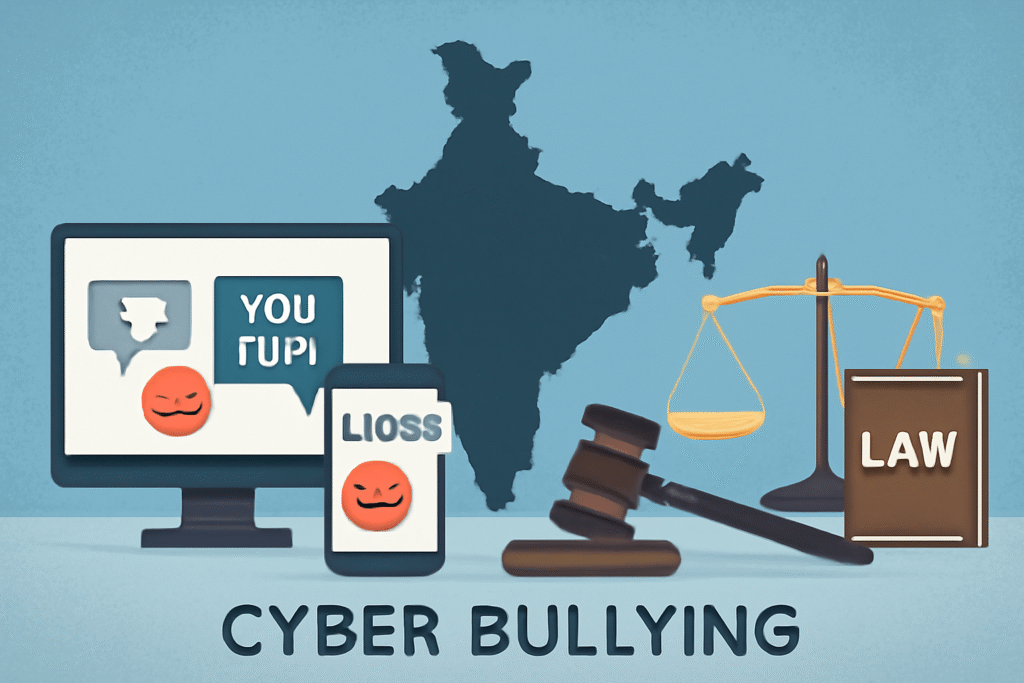Published On: October 28th 2025
Authored By: G. Harini
Government Law College, Theni
Introduction:
The advent of private enterprise in outer space exploration has fundamentally shifted the legal and geopolitical landscape. Once the domain of state actors, space activities are increasingly driven by companies seeking to exploit resources on asteroids, the Moon, and other celestial bodies. As Svetlichnyj and Levchenko observe, both the United States and Luxembourg have enacted legislation that purports to allow private actors to extract, use and dispose of space resources, including minerals and water, thereby challenging long-standing international legal norms.[1] This commercialization trend presents a tension between profit motives and established international principles such as the non-appropriation of celestial bodies and the principle that the exploration and use of outer space shall be carried out for the benefit of all humankind.
Several research questions emerge from this evolving field: First, does international law permit private property rights in outer space, particularly over extracted resources, without implying territorial sovereignty? Second, are the existing treaties, most notably the 1967 Outer Space Treaty and, to a lesser extent, the Moon Agreement, sufficient to regulate commercial space mining in a manner consistent with international legal obligations? Third, what legal reforms or institutional frameworks are necessary to reconcile private commercial interests with public international law principles?
This paper argues that the current international legal regime is inadequate to regulate private space mining in a coherent and equitable manner. While national laws have begun to articulate rights over extracted resources, these tend to conflict with, or at least stretch, international legal norms. Accordingly, clearer global governance frameworks are needed to ensure that the exploitation of space resources proceeds under rules that preserve fairness, peace, and shared benefit.
Historical and Legal Background of Space Law:
The legal foundations of space law were laid during the Cold War, as the United States and the Soviet Union competed in the “Space Race.” Concern over militarisation and sovereignty claims led to the adoption of the 1967 Outer Space Treaty (OST), which remains the central instrument of international space law. The OST prohibits national appropriation of outer space and celestial bodies (Article II) and affirms that their exploration and use must be conducted “for the benefit of all countries” (Article I) and for peaceful purposes (Article IV).[2]
In subsequent years, the 1979 Moon Agreement sought to elaborate on these principles by declaring the Moon and its resources the “common heritage of mankind” and by proposing the establishment of an international regime to govern exploitation. However, its limited ratification, rejected by major spacefaring nations, undermined its effectiveness.[3] As von der Dunk notes, the agreement’s weakness has left international law struggling to provide concrete guidance on resource utilisation.[4]
Recent practice, including the Artemis Accords, reflects a shift toward more pragmatic governance. Deplano argues that these instruments clarify ambiguities in the OST by offering specific norms on resource utilisation and safety zones, while remaining controversial in their departure from the multilateral UN framework.[5]
Despite these developments, a key gap persists: the foundational treaties were drafted primarily with states in mind, neglecting the growing role of private actors. As a result, modern commercial activities such as space mining expose tensions between 20th-century treaty principles and 21st-century economic realities.
The Rise of Private Space Players and Space Mining;
The twenty-first century has witnessed the growing involvement of private actors in outer space, transforming what was once a state-dominated field into a domain of entrepreneurial activity. Companies such as SpaceX, Blue Origin, Planetary Resources, and Astrobiotic have pioneered commercial projects ranging from satellite launches to lunar logistics. Their long-term ambitions include the extraction of rare earth minerals and water ice from celestial bodies, resources that may serve both as commodities and as fuel for sustaining extended missions.[6]
This commercial interest is supported by recent missions, such as NASA’s OSIRIS-REx spacecraft, which successfully returned samples from the asteroid Bennu in 2023, and the Artemis programme, which envisions a sustained human presence on the Moon by the end of the decade.[7] These undertakings demonstrate both the technical feasibility of resource utilisation and the scale of commercial opportunities available. As scholars note, the emerging space economy is projected to exceed USD 1 trillion within the next two decades, with resource extraction expected to play a pivotal role in that growth.[8]
However, this rapid expansion raises complex legal questions. The most pressing dilemma is ownership: can private actors claim rights over extracted materials without violating the non-appropriation principle under the Outer Space Treaty?[9] The absence of a comprehensive international framework has allowed national legislation, particularly in the United States and Luxembourg, to extend ownership rights over extracted resources to private entities. This creates the risk of normative fragmentation and competition between states, underscoring the urgency of developing a coherent international legal response.
International Legal Framework on Space Mining:
The international legal framework governing space mining is primarily rooted in the 1967 Outer Space Treaty (OST), which remains the cornerstone of space law. Article I of the Treaty proclaims that outer space shall be “the province of all mankind” and that exploration and use should be carried out for the benefit of all states. Article II, however, imposes a strict prohibition on national appropriation, declaring that outer space, including celestial bodies, is not subject to sovereignty, ownership or any other means of territorial acquisition. While this prevents states from asserting sovereignty, ambiguity arises in relation to the activities of private corporations, particularly in the extraction of space resources.[10]
The 1979 Moon Agreement attempted to bridge this gap by declaring the Moon and its resources the “common heritage of mankind.” It further proposed the creation of an international regime to govern resource exploitation. Yet, the Agreement failed to secure support from major spacefaring powers such as the United States, Russia, and China, resulting in limited ratification. Consequently, its effectiveness as a regulatory instrument is minimal.[11]
Beyond treaty law, customary international law and UN General Assembly resolutions contribute interpretative guidance. The principle of equitable access remains central, reflecting the broader spirit of international cooperation embedded in space law.[12] Still, one of the most contested questions is whether the use of resources equates to a form of prohibited ownership. Proponents of a liberal interpretation argue that extracting resources is distinct from asserting sovereignty over the celestial body itself. By contrast, critics suggest that large-scale commercial mining undermines the non-appropriation principle and risks monopolisation by technologically advanced states.[13]
Thus, a critical legal uncertainty persists: whether private and state actors may lawfully appropriate extracted resources without contravening Article II of the OST. This unresolved tension between non-appropriation and permissible use underscores the pressing need for clearer international governance mechanisms to address the realities of commercial space mining.
National Space Laws and Unilateral Approaches:
While international treaties provide a broad framework for outer space activities, a number of states have enacted national space laws to regulate commercial exploitation of extraterrestrial resources. The United States took the lead through the Commercial Space Launch Competitiveness Act 2015, which expressly recognises the rights of American citizens and corporations to own, use, and sell resources extracted from celestial bodies.[14] This legislative move was significant as it interpreted the Outer Space Treaty’s non-appropriation principle in a manner favourable to private enterprise, framing resource extraction as distinct from sovereign territorial claims.
Following this precedent, Luxembourg adopted the Space Resources Act 2017, becoming the first European country to provide a legal basis for companies to obtain rights over extracted resources.[15] This positioned Luxembourg as a hub for space resource investment and attracted considerable private capital. Other jurisdictions have followed a similar path: the United Arab Emirates enacted a comprehensive Space Law in 2019 to regulate commercial activities and promote national interests in space,[16] while Japan passed its own legislation in 2021 recognising private rights in resource extraction.[17]
In contrast, India’s Draft Space Activities Bill 2017 adopts a more cautious approach, emphasising governmental regulation and licensing of private activities, but the bill remains pending.[18] The absence of a clear framework has slowed the growth of India’s private space mining sector, despite the country’s advanced space capabilities.
These unilateral initiatives raise serious concerns regarding the fragmentation of international space law. By creating regimes that legitimise private ownership of extracted resources, wealthier states risk entrenching a form of “space colonialism,” where technologically advanced actors dominate extraterrestrial resources to the exclusion of developing countries.[19] This highlights the urgent need for harmonisation through multilateral governance to ensure equitable access and sustainable use of outer space resources.
Challenges in Regulating Space Mining:
The regulation of space mining presents several unresolved legal and policy challenges. The foremost issue concerns the tension between sovereignty and resource rights. While the Outer Space Treaty prohibits direct appropriation of celestial bodies, the recognition of private ownership of extracted resources by some national laws creates a form of indirect appropriation, raising doubts about its compatibility with international law.[20]
Another challenge lies in ensuring equity for developing countries. Advanced spacefaring nations and private corporations currently dominate resource exploration, while less developed states risk exclusion from the benefits of space activities. This threatens the principle that outer space is the “province of all mankind” and undermines broader commitments to equitable access.[21]
Concerns of sustainability and environmental protection also remain underdeveloped. The absence of binding norms governing planetary protection and the proliferation of space debris exacerbate the risks of irreversible environmental damage to both outer space and Earth’s orbital environment.[22] Existing treaties do not provide comprehensive frameworks for addressing the long-term ecological consequences of large-scale resource extraction.[23]
Finally, the lack of clarity in resolving disputes compounds these issues. Conflicting claims may arise between states implementing permissive national legislation and those adhering strictly to international norms. Without a dedicated dispute resolution mechanism, such conflicts could escalate into geopolitical rivalries. Arbitration has been suggested as a flexible and effective mechanism to fill this gap, but its adoption in space mining governance remains limited.[24]
Case Studies & Practical Developments:
One of the most illustrative examples of public–private cooperation in space resource exploitation is NASA’s contracting with private entities to support lunar exploration. Through the Artemis programme, NASA has partnered with commercial firms for tasks such as delivering payloads to the Moon and setting up lunar infrastructure. These contracts reflect a shift: previously, such missions were entirely the domain of state space agencies; now private players are entrusted with significant roles under government oversight and in fulfilment of national policy objectives.[25]
Luxembourg offers a complementary model. The country has actively pursued partnerships with asteroid-mining firms, offering legal certainty and investment incentives under its Space Resources Act. These partnerships facilitate research, funding, and mission planning for private companies, reinforcing Luxembourg’s position as a hub for commercial space resource exploitation.
The Artemis Accords represent a major practical development in international space law. Signed initially by eight States in October 2020 (including the U.S., Luxembourg, Japan, UAE, and others), the Accords set out 13 principles for cooperation in space exploration, including resource utilisation, preservation of heritage, and sustainable practices. While not legally binding, the Accords go beyond mere reaffirmation of treaty norms by incorporating novel concepts such as “safety zones” and adaptive governance, thus moulding new norms around how States and private entities cooperate.
In contrast, China and Russia have favoured a more traditional UN-centred governance of outer space resources. These States have expressed reservations about the unilateral or quasi-bilateral approach exemplified by the Artemis Accords, viewing them as insufficiently inclusive and potentially privileging the interests of signatory, typically more advanced, States.[26] The divergence in approaches underscores the current lack of consensus in how best to regulate commercial access to space resources, and highlights how case studies like Artemis and Luxembourg are reshaping international practice, sometimes in tension, sometimes in dialogue with existing treaty law.
Recommendations & The Way Forward:
The growing momentum of commercial space mining requires the development of a comprehensive international framework to address emerging gaps in governance. Existing treaties, while foundational, were negotiated in an era when state actors were the sole participants. A new treaty, or a protocol under the Outer Space Treaty, could provide clarity on resource utilisation, private sector rights, and the distribution of benefits.[27]
The United Nations Committee on the Peaceful Uses of Outer Space (UNCOPUOS) is well placed to lead such negotiations. As the principal forum for space governance, UNCOPUOS could promote consensus-building and ensure inclusivity, especially by incorporating the voices of developing nations that risk marginalisation under purely national initiatives.[28]
One practical measure would be the establishment of an international licensing system for space mining operations, administered under UN auspices. Similar to the International Telecommunication Union’s allocation of orbital slots, such a system would regulate access, prevent conflicts, and maintain transparency.[29] Complementing this, the creation of a global fund for equitable benefit-sharing, akin to the International Seabed Authority under the Law of the Sea Convention, would guarantee that profits derived from space resources are not monopolised by technologically advanced states but distributed for the advancement of all humankind.[30]
At the same time, emerging instruments such as the Artemis Accords can serve as a foundation for more inclusive multilateral governance. While initially U.S.-led, they provide a platform for states to experiment with practical principles, which could later be codified into binding international law. The challenge lies in balancing innovation and investment incentives for private actors with fairness, sustainability, and the principle that outer space remains a shared domain. Such a balance is essential to prevent resource exploitation from evolving into a new arena of geopolitical inequality.[31]
Conclusion:
The evolution of space resource exploitation highlights the inadequacy of the current international legal framework to regulate private mining ventures. While the Outer Space Treaty (OST) laid the foundation for the principle of non-appropriation, its ambiguity regarding commercial extraction has left considerable uncertainty, particularly as private actors expand their technological capacity to exploit celestial bodies.[32] The increasing number of national legislations authorizing private mining, alongside NASA’s contracts with commercial partners, demonstrate a trend towards unilateralism that could fragment global governance. Such developments carry the inherent risk of precipitating a “space race 2.0,” where powerful states and corporations dominate access to extraterrestrial resources.[33]
This competitive trajectory undermines the cooperative spirit of international space law and raises concerns of inequitable distribution of benefits, particularly for states lacking advanced space capabilities. If unchecked, it could replicate patterns of terrestrial inequality and resource exploitation, thereby converting outer space into a domain of geopolitical rivalry rather than shared progress.[34]
The path forward lies in establishing a cooperative, inclusive, and enforceable legal framework. Strengthening the role of multilateral institutions such as the UN Committee on the Peaceful Uses of Outer Space (UNCOPUOS), creating an international licensing system, and exploring models of benefit-sharing, akin to the International Seabed Authority, are critical steps. A forward-looking approach, balancing innovation with fairness, will ensure that space remains a domain for collective advancement. The trajectory of space law will thus determine whether humanity embraces outer space as a shared heritage or allows it to devolve into another arena of unequal exploitation.
References:
[1] Oleksandr Svetlichnyj and Diana Levchenko, ‘Commercialization of Space Activities: Correlation of Private and Public Interest in the Pursuit of Outer Space Exploration’ (2019) 4 Advanced Space Law 80, 81-83.
[2] M Hedayati, ‘Outer Space Treaty and the Principle of Non-Appropriation’ (2019) 12 Public Law Studies Quarterly 45, 47 https://www.pzhfars.ir/article_220344_5e91d56deeccef545798c7c29070d6b1.pdf?lang=en
[3] Stephen Gorove, ‘The 1979 Moon Agreement: Problems and Prospects’ (1980) 44 Yale Journal of International Law 37 https://heinonline.org/HOL/LandingPage?handle=hein.journals/yjil44&div=8&id=&page=
[4] Frans von der Dunk, ‘International Space Law’ in Frans von der Dunk and Fabio Tronchetti (eds), Handbook of Space Law (Edward Elgar 2015) https://www.elgaronline.com/edcollchap/edcoll/9781781000359/9781781000359.00010.xml
[5] Rossana Deplano, ‘The Artemis Accords: Evolution or Revolution in International Space Law?’ (2021) 70 ICLQ 799 https://www.cambridge.org/core/journals/international-and-comparative-law-quarterly/article/artemis-accords-evolution-or-revolution-in-international-space-law/DC08E6D42F7D5A971067E6A1BA442DF1
[6] Mark J Sundahl, ‘The Rise of Private Actors in Space’ (2019) 8 Intl J L & Mgmt Human Sci 107 https://heinonline.org/HOL/LandingPage?handle=hein.journals/ijlmhs8&div=15&id=&page=
[7] Joseph N Pelton, Space Mining and Its Regulation (Springer 2022) 33 https://books.google.co.in/books?id=qOR9EAAAQBAJ
[8] Mahulena Hofmann, ‘Commercial Space Activities and the Law’ (2018) 26 Michigan State Intl L Rev 85 https://heinonline.org/HOL/LandingPage?handle=hein.journals/mistjintl26&div=7&id=&page=
[9] Henry R Hertzfeld, ‘Legal Framework for Space Resource Utilisation: Balancing Public and Private Interests’ (2020) Space Policy https://www.proquest.com/openview/295b552377e50a36ba5f99e45870052c/1?pq-origsite=gscholar&cbl=18750
[10] Michael Dodge, ‘The Artemis Accords and the Outer Space Treaty: Reconciling Sovereignty and Resource Rights’ (2020) Western University Journal of Space Law https://uwo.scholaris.ca/items/336e449a-b4cf-4ce9-8225-d6bf232bba5b
[11] Bin Cheng, ‘Article II of the Outer Space Treaty Revisited’ (2013) 55 Arizona Law Journal 287.
[12] Fabio Tronchetti, ‘The Moon Agreement in the 21st Century: Common Heritage, Common Concern or Common Illusion?’ (2019) 18 Astropolitics 137.
[13] Stephan Hobe, ‘Legal Aspects of the Use of Space Resources’ (2014) 66 Zeitschrift für Luft- und Weltraumrecht 297.
[14] Fabio Tronchetti, ‘The Commercial Space Launch Competitiveness Act of 2015: U.S. Space Resource Exploration and Utilization in the Light of International Space Law’ (2016) SSRN https://papers.ssrn.com/sol3/papers.cfm?abstract_id=5287076
[15] Gbenga Oduntan, ‘Who Owns Space? US Asteroid-Mining Act is Dangerous and Potentially Illegal’ (2016) 29 Nottingham Law Journal 5.
[16] Mauro Andrezza, National Space Legislation in Europe: Issues of Authorisation and Continuing Supervision (Giuffrè Editore 2019) 259.
[17] Steven Freeland, ‘Japan’s Space Resources Act and Its Implications’ (2019) 9 Global NEST Law Review 225.
[18] Venkatachala G Reddy, ‘The Need for a Comprehensive Space Law in India: An Analysis of the Draft Space Activities Bill 2017’ (2012) SSRN https://papers.ssrn.com/sol3/papers.cfm?abstract_id=2072514
[19] Ibid.
[20] L Liu and J Zhang, ‘Legal Issues of Space Resource Utilization’ (2020) 738 IOP Conference Series: Materials Science and Engineering 012014.
[21] Thomas C Hendricks, ‘Space Mining and the Unequal Sharing of Benefits’ (2019) 57 Georgia Law Review 987.
[22] Fabio Tronchetti, ‘The Exploitation of Natural Resources of the Moon and Other Celestial Bodies: A Proposal for a Legal Regime’ (2002) 8 International Journal of Law and Management in Health Sciences 223.
[23] Joel A Dennerley, ‘Out of Sight, Out of Mind? The Proliferation of Space Debris and International Law’ (2018) 31 Leiden Journal of International Law 507.
[24] Maxi Scherer, ‘Dispute Settlement in Space Mining: Arbitration as a Mechanism’ (2016) 33 Journal of International Arbitration 387.
[25] Rossana Deplano, ‘The Artemis Accords: Evolution or Revolution in International Space Law?’ (2021) 70 Int & Comp L Q 799.
[26] Ibid.
[27] Maria Manoli and Antonino Salmeri, ‘Space Mining and its Legal Challenges’ (2020) 4 Space Policy 100055.
[28] L Liu and J Zhang, ‘Legal Issues of Space Resource Utilization’ (2020) 738 IOP Conference Series: Materials Science and Engineering 012014.
[29] Frans von der Dunk, ‘Asteroid Mining: International and National Legal Aspects’ (2012) 31 Space Policy 146.
[30] Mahulena Hofmann, ‘Space Resources Activities and Benefit Sharing: A European Perspective’ (2022) University of Luxembourg, ORBilu https://orbilu.uni.lu/handle/10993/51933
[31] Fabio Tronchetti, ‘Inclusive Space Law: The Concept of Benefit-Sharing in the Outer Space Treaty’ (2021) 70 ICLQ 899.
[32] Philip De Man, ‘The Future of Space Mining: Legal and Ethical Challenges’ (2022) 199 Acta Astronautica 13.
[33] Fabio Tronchetti, ‘The Exploitation of Space Resources: Revisiting the Benefits Sharing Principle in the Light of the Moon Agreement’ (2019) 34 Astropolitics 82.
[34] Gbenga Oduntan, ‘The New Space Race: The Legal and Policy Challenges of Commercial Mining Activities in Outer Space’ (2025) 42 Space Policy 1.




